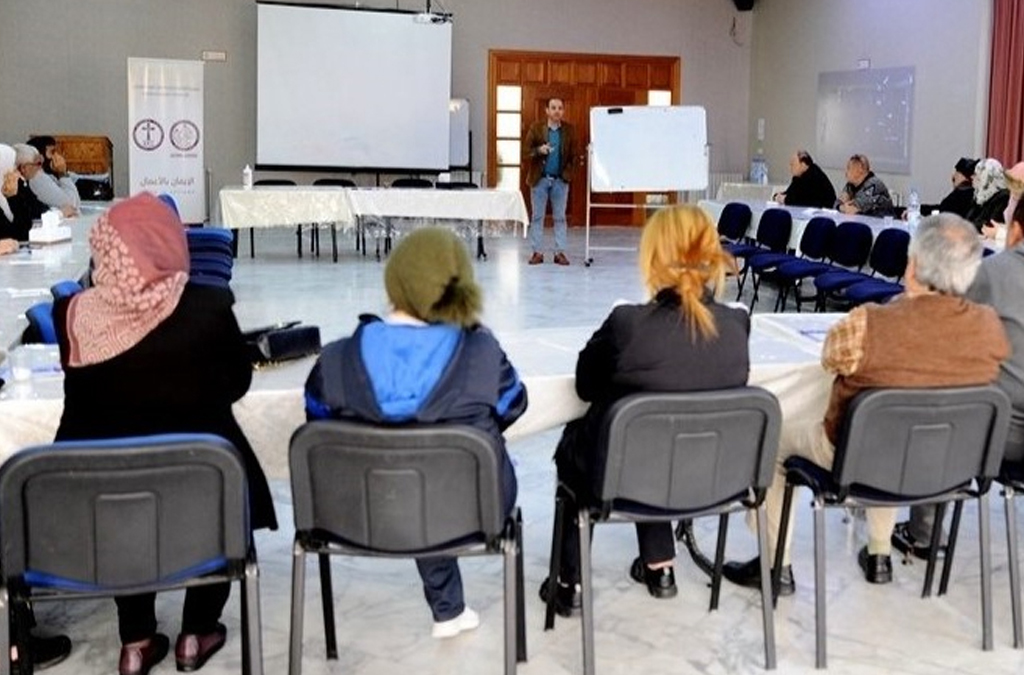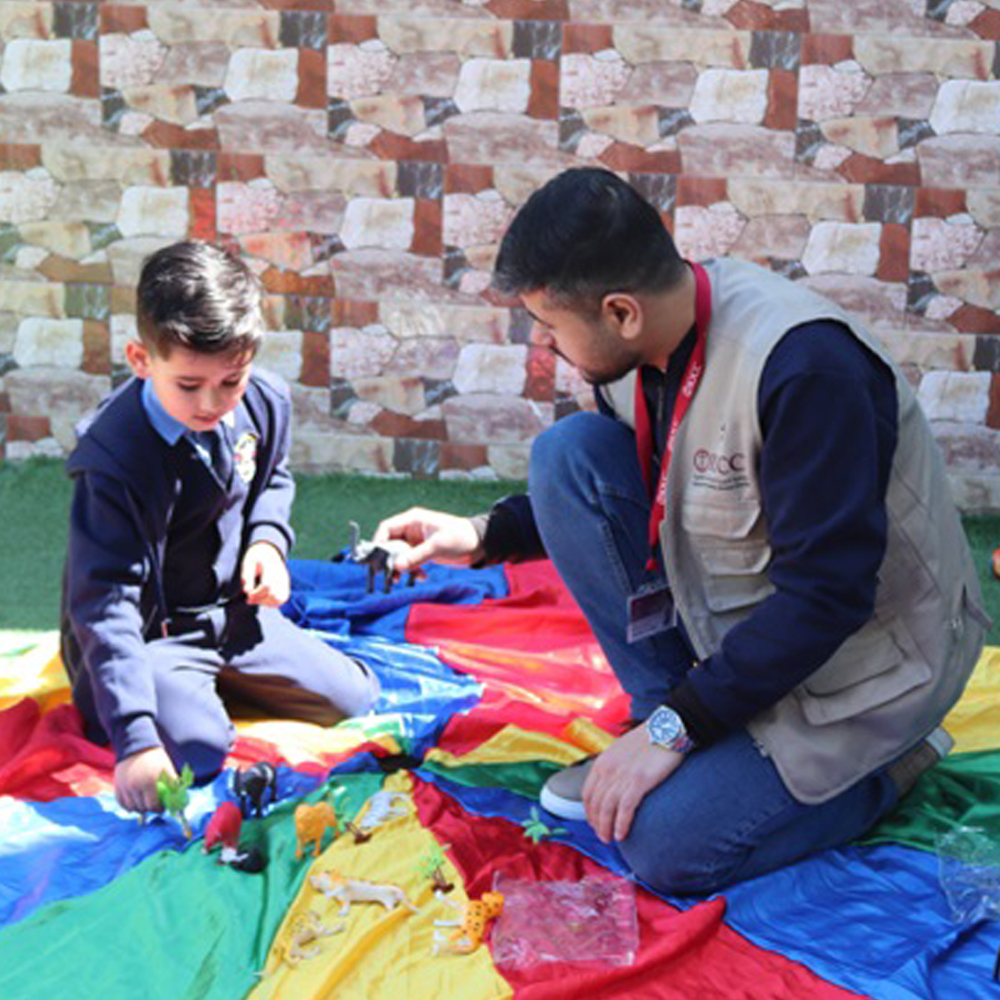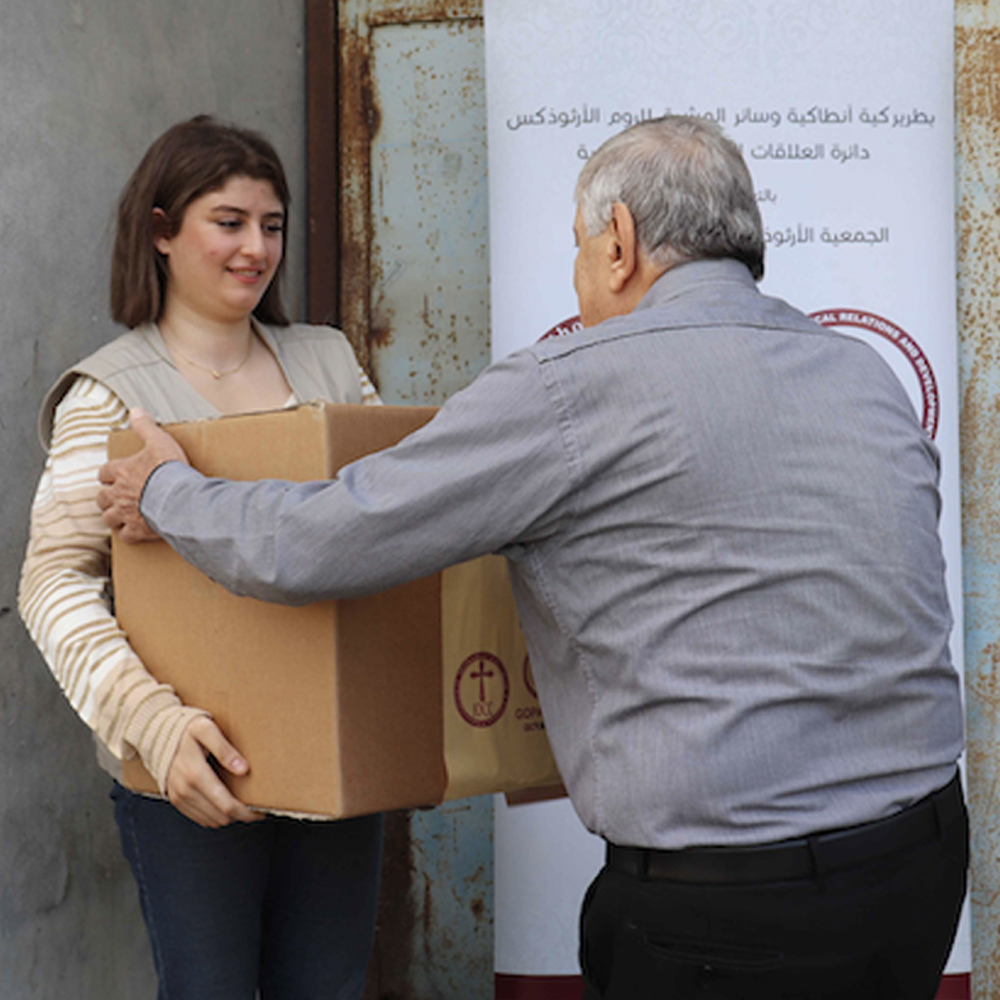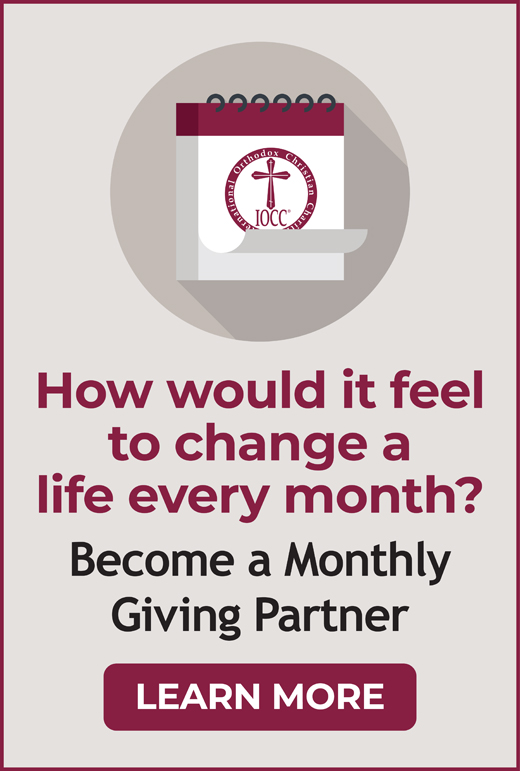
“I used to lock myself away and go into seclusion. I had a mixture of bad emotions such as fear, anxiety, and mental instability.”
Mona (not her real name) is an Iraqi refugee and a mother of two who lives with her husband and children in a suburb of Rural Damascus, Syria. Fleeing conflict in her home country and meeting more hardship in Syria led Mona to a combination of psychological disorders. Things only got worse when she found out she had cancer.
Combined with her already difficult life, this diagnosis led Mona to withdraw almost completely, interacting very little even with her immediate family. She would sit alone, unable to break free of her negative thoughts.
Worried for her, some of Mona’s neighbors suggested that she visit IOCC’s mobile health team—they’d had a good experience and thought IOCC could help Mona, too. She decided to go for a visit.
The team met with Mona and, after some assessments, found that she had severe depression. As a first step, they suggested she participate in an IOCC workshop on psychosocial support and gender-based violence, a way to orient her and help her better understand what she was experiencing.
It helped. Mona was energized, and she told staff she wanted to do more. She signed up for a four-day psychosocial session on depression, and IOCC’s mobile team offered Mona multiple constructive psychological support techniques to help her cope with her condition, accept her reality, and better interact with those around her. “After enrolling in IOCC’s … program,” she said, “I changed, and my thoughts changed too. I have learned to manage my emotions, and now I can interact better with my husband and children.” Relaxation activities and breathing exercises, among other practices, helped Mona recognize her thoughts and better manage her emotions.
“The sessions not only helped me control my thoughts and emotions,” Mona said, “but I also had the opportunity to meet other people with similar conditions, so I felt that I am not alone in this. I even met people with psychological problems that are worse than mine.” Now she feels able to face her reality, especially her cancer treatment, with increased resilience. “Thank you, IOCC, for the constructive support I received from you. Now I feel more confident that I can handle my situation because I feel as if I am psychologically healed.”





